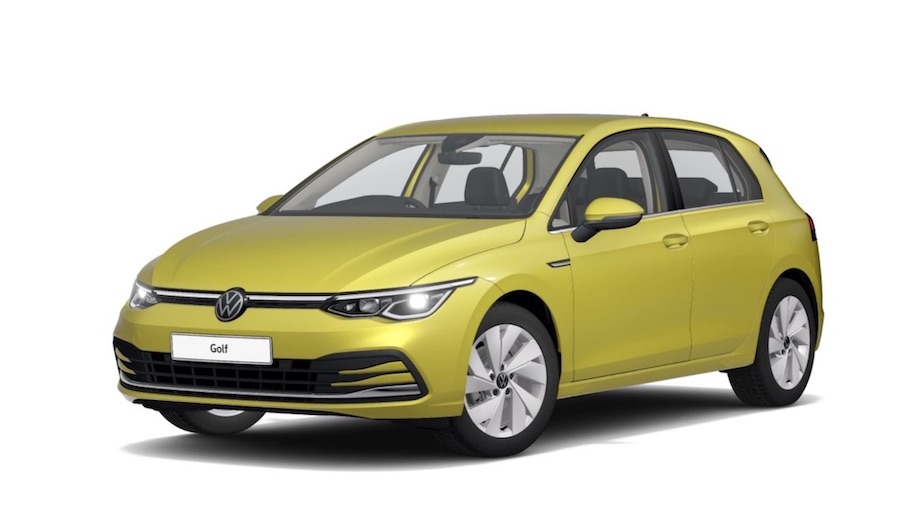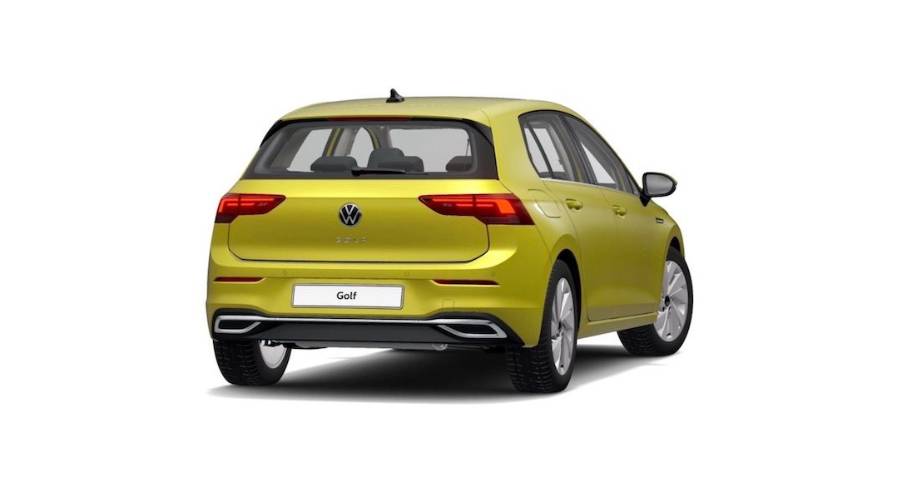Overview
Volkswagen AG, the Germany automotive group is one of the leading automotive companies in the global electric vehicle (EV) industry. Volkswagen has committed to an investment up to Euro 30 billion by 2023. It aims to sell 3 million electric vehicles by 2025 and launch up to 70 new EV models over the next 10 years.
With the launch of its electric vehicle ID. Family, VW is fast cementing a dominant position to become the world’s largest electric vehicle (EV) manufacturer by 2028, with the automotive behemoth planning to manufacturer 22 million electric vehicles. The automotive company currently has a number of battery-electric vehicles (BEVs) and plug-in hybrid electric vehicles (PHEVs) on sale, to include:
- The all-electric VW ID.3
- The all-electric VW ID.4
- The all-electric VW ID.4 GTX
- The all-electric VW ID.5
- The all-electric VW ID.5 GTX
- The all-electric VW ID.7
- The all-electric VW e-up!
- VW Touareg R Plug-In Hybrid
- VW Passat GTE Plug-In Hybrid
- VW Passat GTE Plug-In Hybrid Estate
- VW Golf 8 Plug-In Hybrid
- VW Tiguan eHybrid
Electric Cars: The Basics
For those of you new to zero-emission electric driving, we recommend a read of the following articles:
Sign up to the e-zoomed Electric Living newsletter
The Volkswagen Golf 8 PHEV Hatchback
The Volkswagen Golf 8 (Mk8) hatchback is the eight generation of the iconic VW Golf hatchback series. VW Golf cars have been sold since 1974. The Golf has won a number of prestigious motoring accolades over the past 6 decades. The latest iteration of this best-selling vehicle, the Golf 8, was launched in 2019 in Germany. The VW Golf plug-in hybrid electric vehicle (PHEV) is built on the Volkswagen MQB platform.
The Volkswagen Golf PHEV is worth considering for those keen on a more affordable entry into plug-in hybrid electric driving. The VW Golf EV has much to offer in terms of practicality and financial savings. The VW plug-in electric car competes in a very competitive segment i.e. small-sized family cars. Despite the intense competition, the PHEV is well placed relative to the competition.
The VW plug-in electric car has a 13 kWh onboard EV battery with a pure electric range up to 42 miles (certified WLTP). The higher performance VW Golf GTE PHEV has a claimed emission-free electric range up to 37 miles. Though the real-world EV range will be lower, possibly between 32 – 35 miles, the EV still offers a longer EV range compared to competitors in its segment.
The EV has a good value proposition for those keen to save money by driving on pure electric mode. Depending on where the cost of charging, driving an electric car will cost between 5 pence and 10 pence per mile i.e. far cheaper compared to calling on the internal combustion engine (ICE).
The VW PHEV is not DC charging compatible (most PHEVs are not) and has a 3.6 kW onboard charger. Quite typical for a PHEV in this price segment. We discourage the use of a 3-PIN domestic plug for charging and encourage charging via a dedicated home EV charger. The PHEV can be fully charged in 3 hours and 40 minutes. Using a domestic 3-PIN plug will take up to 5 hours to achieve a full charge.
The real-world 32 miles (plus) electric range is sufficient for most of our daily needs. In fact, in the UK, the majority of motorists drive at an average 30 miles per day. So for all the shorter commutes to the school, high street, grocery store etc, driving on e-mode is a perfect fit!
Even, for those that drive to work, driving on electric mode works well, as the electric car can be charged at home and at work (workplace EV charging)! For those weekend getaways, the petrol engine can be utilised for the longer drives.
Bottom-line, if you are not driving electric, you are not saving money. Moreover, driving in e-mode also further improves the efficiency of the electric vehicle. Volkswagen claims the PHEV has a fuel economy up to 313.9 mpg for the Style variant and up to 235.4 mpg for the GTE. Real-world economy will certainly be lower, but substantially better compared to the conventional internal combustion (ICE) variant (36.7 mpg).
In terms of performance, the VW Golf PHEV delivers a decent experience. The 1.4-litre TSI petrol engine is paired with an electric motor (80 kW). The front-wheel drive plug-in electric car can achieve 0-62 mph in 6.7 seconds for the GTE. The top speed of the EV is 140 mph. The total system performance for the GTE is 245 PS and 250 Nm torque. Certainly suitable for city and motorway driving. Of course, do keep in mind that the EV also benefits from instant torque.
Though the boot space (273 L) has been reduced in size to accommodate the onboard EV battery, the PHEV is family-friendly in terms of practicality, offering adequate interior space, legroom and headroom. The EV has a good level of equipment and safety features.
Depending on the variant, the following come as standard: lane assist, traffic jam assist, emergency assist, lane change system side assist, rear traffic alert and exit warning system, multifunction front facing camera for distance control, “Discover Media” navigation system, digital cockpit pro – 10.25″ high resolution and more.
Due to its lower tailpipe emissions (25g CO2/km), company-car drivers can take advantage of the lower Benefit-in-Kind (BiK-12%) tax rate. The conventional internal combustion engine (ICE) VW Golf 8 variant has tailpipe emissions as high as 176g CO2/km. Bottom-line, driving a PHEV improves local air quality. The EV does not qualify for the UK government plug-in car grant (PiCG).
Bottom-line, electric driving is good for the environment and the wallet. You can lease electric vehicles (EVs) via e-zoomed at very competitive prices!
| PROS | CONS |
|---|---|
| A practical and spacious family hatchback that is environment-friendly | Boot size impacted by onboard EV battery |
| Hot-hatchback power | Cheaper plug-in hybrid alternatives |
| Decent zero-emission electric range | Onboard charger limited to 3.6 kW |
The Volkswagen Golf PHEV (credit: Volkswagen)
| At A Glance | |
|---|---|
| EV Type: | Plug-In Hybrid Electric Vehicle (PHEV) |
| Body Type: | Hatchback |
| Plug-In Car Grant (PiCG): | Not Available |
| Engine: | Petrol/Electric |
| Available In UK: | Yes |
| Variants (2 Options) |
|---|
| Volkswagen Golf Style (from £35,315) |
| Volkswagen Golf GTE (from £38,725) |
| EV Battery & Emissions | |
|---|---|
| EV Battery Type: | Lithium-ion |
| EV Battery Capacity: | Available in one battery size: 13.0 kWh |
| Charging: | DC charging not available. Onboard charger 3.6 kW AC (0% – 100% SOC: 3 hrs and 40 mins) |
| Charge Port: | Type 2 |
| EV Cable Type: | Type 2 |
| Tailpipe Emissions: | 21 – 25g (CO2/km) |
| EV Battery Warranty: | 3 years or 60,000 miles |
| Average Cost Of Residential Charging | |
|---|---|
| Battery net capacity : 8.8 kWh | £1.27 |
| Battery net capacity : 11.6 kWh | £1.67 |
| Battery net capacity : 12.0 kWh | £1.73 |
| Battery net capacity : 13.10 kWh | £1.89 |
| Battery net capacity : 14.10 kWh | £2.03 |
- Note 1: The average cost of residential electricity in the UK varies depending on the region, supplier and type of energy used. An average for the UK is 14.40 p/kWh.
- Note 2: Not all EV manufactures make available the data on net EV battery capacity, and in a number of instances the EV battery capacity advertised, does not state if it is gross or net capacity. In general, usable EV battery capacity is between 85% to 95% of the gross available capacity.
| Charging Times (Overview) | |
|---|---|
| Slow charging AC (3 kW – 3.6 kW): | 6 – 12 hours (dependent on size of EV battery & SOC) |
| Fast charging AC (7 kW – 22 kW): | 3 – 8 hours (dependent on size of EV battery & SoC) |
| Rapid charging AC (43 kW): | 0-80%: 20 mins to 60 mins (dependent on size of EV battery & SoC) |
- Note 1: SoC: state of charge
| Dimensions | |
|---|---|
| Height (mm): | 1482 |
| Width (mm): | 1789 |
| Length (mm): | 4284 |
| Wheelbase (mm): | 2629 |
| Turning Circle (m): | 10.9 |
| Boot capacity (L): | 273 |
| Golf 8 Style 1.4 TSI eHybrid | |
|---|---|
| EV Battery Capacity: | 13.0 kWh |
| Pure Electric Range (WLTP): | 42 miles |
| Fuel Consumption (mpg): | 313.9 |
| EV Operation Efficiency (Wh/km): | 137.07 |
| Charging: | DC charging not available. Onboard charger 3.6 kW AC (0% – 100% SOC: 3 hrs and 40 mins) |
| Top Speed: | 137 mph |
| 0-62 mph: | 7.4 seconds |
| Drive: | Front-wheel drive (FWD) |
| Electric Motor (kW): | 80 |
| Max Power (PS): | 204 |
| Torque (Nm): | 250 |
| Transmission: | Automatic |
| Seats: | 5 |
| Doors: | 5 |
| Unladen Weight (kg): | 1,590 |
| Colours: | 10 |
| NCAP Safety Rating: | Five-Star |
| Golf 8 GTE 1.4 TSI eHybrid | |
|---|---|
| EV Battery Capacity: | 13.0 kWh |
| Pure Electric Range (WLTP): | 37 miles |
| Fuel Consumption (mpg): | 235.4 |
| EV Operation Efficiency (Wh/km): | 144.65 |
| Charging: | DC charging not available. Onboard charger 3.6 kW AC (0% – 100% SOC: 3 hrs and 40 mins) |
| Top Speed: | 140 mph |
| 0-62 mph: | 6.7 seconds |
| Drive: | Front-wheel drive (FWD) |
| Electric Motor (kW): | 80 |
| Max Power (PS): | 245 |
| Torque (Nm): | 250 |
| Transmission: | Automatic |
| Seats: | 5 |
| Doors: | 5 |
| Unladen Weight (kg): | 1,624 |
| Colours: | 8 |
| NCAP Safety Rating: | Five-Star |
While e-zoomed uses reasonable efforts to provide accurate and up-to-date information, some of the information provided is gathered from third parties and has not been independently verified by e-zoomed. While the information from the third party sources is believed to be reliable, no warranty, express or implied, is made by e-zoomed regarding the accuracy, adequacy, completeness, legality, reliability or usefulness of any information. This disclaimer applies to both isolated and aggregate uses of this information.








































